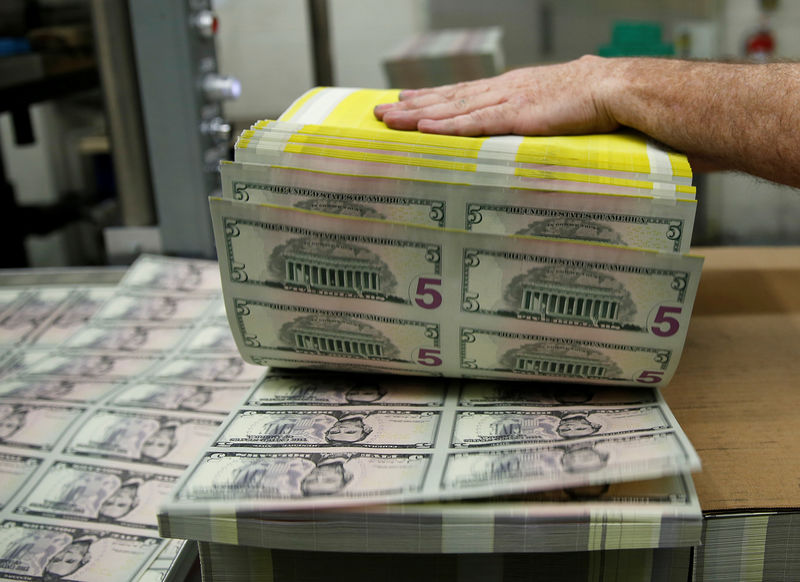Investing.com - In the coming week investors will continue to monitor trade developments and moves in the Chinese yuan amid ongoing U.S.-China trade war concerns. Economic data from around the world will also be in focus as investors try to gain insights into the health of the global economy and whether central banks will stick to an accommodative monetary policy path.
The yen and the Swiss franc rose against the U.S. dollar on Friday, with the yen reaching seven month peaks, as safe haven demand continued to be underpinned by the escalation in the trade war between Washington and Beijing and concerns over global growth.
U.S. President Donald Trump said on Friday that he was not ready to make a trade deal with China and had decided that the U.S. would not do business with Chinese telecoms giant Huawei Technologies for the time being.
Also on Friday, data showed underlying U.S. producer prices fell 0.1% in July, suggesting inflation remained muted, and Canada’s economy lost 24,200 jobs last month.
In Britain, the economy shrank for the first time since 2012 in the second quarter and sterling slid to a 31-month low against the dollar.
“Take your pick. You look around the world, all the data were negative or at least concerning,” said John Doyle, vice president for dealing and trading at Tempus in Washington. “Of course, you’re going to see an uptick in the Swissie (franc) and the yen.”
The greenback weakened against a basket of currencies, pressured as Trump repeated his call for a weaker currency to help American manufacturers.
The U.S. dollar index edged down to 97.37 posting its biggest weekly decline since June 21.
Trump told reporters at the White House he believes the Federal Reserve needs to lower interest rates by a full percentage point.
In late trading, the dollar fell 0.34% against a surging yen to 105.68, after earlier dropping to a seven-month low of 105.25. The yen posted its second weekly gain versus the U.S. dollar and its third weekly rise versus the Australian and New Zealand dollars.
The Swiss franc rose versus the dollar and euro. The dollar was last down 0.21% at 0.9724 franc, while the euro slipped 0.1% at 1.0892 francs.
The euro rose 0.2% against the dollar to 1.1198, while the British pound fell 0.82% to 1.2029 against the dollar and 0.7% versus the single currency.
Ahead of the coming week, Investing.com has compiled a list of significant events likely to affect the markets.
Monday, August 12
Financial markets in Japan are closed for a holiday.
Tuesday, August 13
U.K. employment report (Jun)
German ZEW economic sentiment (Aug)
U.S. CPI (Jun)
Wednesday, August 14
China Fixed asset investment (Jul)
China Industrial production (Jul)
China Retail sales (Jul)
U.K. CPI (Jul)
German preliminary GDP
Eurozone Flash GDP
Thursday, August 15
U.K. Retail sales (Jul)
U.S. Retail sales (Jul)
U.S. Philly Fed manufacturing index (Aug)
U.S. Empire State manufacturing index (Aug)
U.S. Industrial production (Jul)
U.S. initial jobless claims
Friday, August 16
U.S. Building permits (Jul)
U.S. Housing starts (Jul)
U.S. Michigan Consumer Sentiment (Aug)
--Reuters contributed to this report
